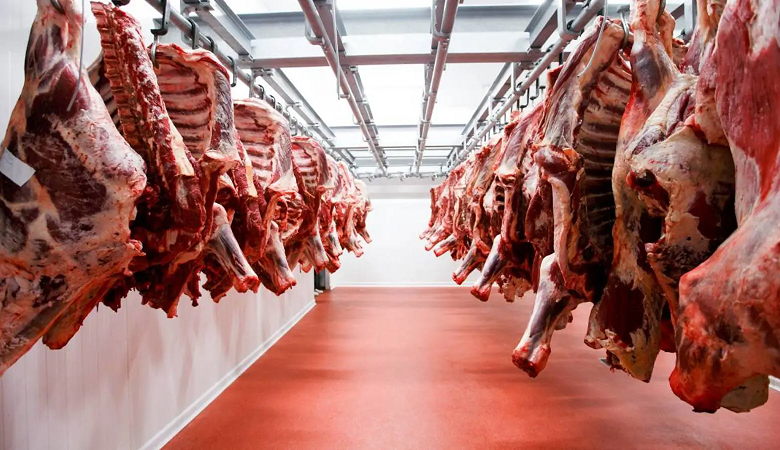
Meat industry stakeholders in Uganda have raised the alarm over the widespread sale of contaminated meat in Kampala, warning that poor handling practices and the illegal use of toxic chemicals are putting consumers at serious health risk.
According to Colin Muyanja, CEO of Ranchers Finest, meat sold in many of Kampala’s informal markets often contains dangerous bacteria such as Salmonella due to unhygienic processing and lack of refrigeration.
“There’s a lot of bacteria, ranging from Salmonella to others. Some of it is poisonous, and in many cases, it’s contributing to the rising cases of cancer,” Muyanja said during the launch of a new hygienic butchery initiative developed in partnership with Kampala Capital City Authority (KCCA).
He also condemned the illegal use of formalin—a chemical used to embalm bodies—to preserve meat, calling it a grave public health hazard.
“Flies are not a sign of freshness. They are a sign of contamination,” Muyanja said, debunking a common myth among meat buyers.
To address the problem, Ranchers Finest has rolled out a network of hygienic butcheries under the Beta Butcher brand, equipped with cold storage, digital weighing systems, and pre-packaged beef and chicken options to maintain sanitary standards.
The outlets have already been opened in areas such as Ntinda, Kira, Muyenga, and Munyonyo, with more than 20 facilities operational and another 50 expected over the next two months. The initiative also offers home delivery and prioritizes employment for women and youth.
“This is about more than just meat. It’s about protecting families, creating jobs, and setting a new standard in Uganda’s food sector,” Muyanja said.
Speaking at the launch in Munyonyo, Shila Birungi Gandi, Director for Gender, Community Services & Production at KCCA, welcomed the partnership with Ranchers Finest, citing the urgent need to clean up Kampala’s meat supply chain.
“The quality of meat on the market has long been compromised due to the unhygienic conditions under which many butchers operate. This puts public health at serious risk,” Birungi said.
She noted that KCCA is stepping up its efforts to ensure stricter regulation and oversight of butcheries across the city. The authority will also support public sensitization on food hygiene and safety practices.
The launch of Beta Butcher is part of a broader push to raise hygiene standards across Uganda’s food sector, where regulatory enforcement has often been weak.
With Kampala’s population and meat demand continuing to grow, sector players warn that failure to act could escalate already high rates of foodborne illness.
Muyanja urged consumers to make informed choices and reject meat sold in unsanitary conditions.
“It’s time for Ugandans to value food safety as much as price. Cheap meat that compromises your health is not worth it,” he said.
The hygienic butcheries are expected to set a new industry benchmark, promoting traceability, fair pricing, and reliable quality in a sector long plagued by informal practices and poor oversight.







